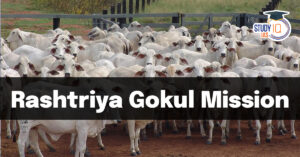Table of Contents
Context: The Mahatma Gandhi National Rural Employment Guarantee Scheme (MGNREGS) faced a budget shortfall in 2024-25, with no additional allocation provided, leading to delays in wage disbursement for workers.
About MGNREGS
- The Mahatma Gandhi National Rural Employment Guarantee Act (MGNREGA) serves as the legislative foundation for the Mahatma Gandhi National Rural Employment Guarantee Scheme (MGNREGS).
- Launch: 2005 by the Ministry of Rural Development
Key Features
- To provide at least 100 days of guaranteed wage employment in a financial year to every household whose adult members volunteer to do unskilled manual work.
- Unemployment allowance must be provided if work is not allotted.
- The scheme is funded by the Central Government (100% wages) and a shared material cost (60% Centre, 40% States).
- Aims to improve the economic resources available to the poor.
- Proactively focuses on including all social segments.
- Strengthens the role and capabilities of Panchayati Raj Institutions (PRIs).
Provisions and Regulation
- Section 3 (3): The disbursement of daily wages shall be made on a weekly basis or in any case not later than a fortnight after the date on which such work was done.
- Section 7(1) of MGNREGA: It is a legal guarantee, ensuring that any rural adult can request work and must receive it within 15 days.
- If this commitment is not met, an “unemployment allowance“ must be provided.
- Section 17 of MGNREGA: This requires Gram Sabhas to oversee work execution, establishing a legal foundation for social audits.
- 2011 Rules for Auditing MGNREGA: Developed in collaboration with India’s CAG, establish social audit procedures and specify the duties of entities like the Social Audit Unit (SAU), state governments, and MGNREGA field workers.
- Social audit units function independently from MGNREGA implementing agencies, guaranteeing unbiased evaluations, and are funded with 0.5% of the state’s previous year’s MGNREGA spending.
Benefits of MNREGA
- Rural Income Enhancement: The scheme offers critical employment opportunities, particularly in off-seasons, thereby boosting household incomes in rural areas.
- Eg., In villages like Sarai in Bihar, MGNREGA has significantly augmented local incomes, especially in non-agricultural periods.
- Mitigating Rural-Urban Migration: By providing local employment, MGNREGA lessens the need for rural residents to migrate to urban areas for work.
- Eg., In Neemka in Uttar Pradesh, the scheme has reduced economic-driven migration and improved local living conditions.
- Women’s Economic Independence: With its mandate for female labour participation and direct wage payments to women.
- Eg., In Kudumbashree (Kerala), the program has led to the formation of significant women-led initiatives.
- Cushioning Against Economic Shocks: The scheme has been a lifeline during crises like the COVID-19 pandemic, providing essential employment to those in need.
- Community Asset Development: MGNREGA plays a vital role in reviving and creating community assets, particularly in water conservation.
- Eg., The restoration of traditional irrigation systems like Kul in Himachal Pradesh, has revitalized local agriculture.
- Environmental Restoration: The program contributes to environmental conservation efforts, such as afforestation and soil conservation.
- Eg., In regions like Sundarbans, and West Bengal, MGNREGA has been instrumental in mangrove plantation and soil erosion control.
- Local Infrastructure Improvement: Beyond agricultural support, MGNREGA has facilitated the development of basic rural infrastructure, such as roads and public buildings.
- Eg., In tribal areas of Chhattisgarh, the scheme has significantly improved connectivity and access to facilities.
- Skill Development: In tribal belts of Odisha, MGNREGA has provided training in traditional arts, aiding in preserving cultural heritage while enhancing livelihoods.
What are the Challenges Associated?
- Deficient Disbursement Of Unemployment Allowances: In the financial year 2023-24, only ₹90,000 was released as unemployment allowance, a stark decrease from ₹7.8 lakh in 2022-23.
- This drastic reduction indicates a failure to meet the scheme’s objective of providing financial support to workers when employment demands are unmet.
- A report by civil society organisations LibTech India and NREGA Sangharsh Morcha:
- Account Deletions: Mandatory linking of Aadhaar to job cards under the Aadhaar-Based Payment System (ABPS) led to severe consequences for many workers:
- Eg., Approximately 39 lakh workers were deleted from MGNREGS rolls between April and September 2024 alone due to non-compliance with Aadhaar linking requirements.
- Payment Delays: Around 67 million workers have not received wages since April 2024, primarily due to issues stemming from the Aadhaar linking process.
- Account Deletions: Mandatory linking of Aadhaar to job cards under the Aadhaar-Based Payment System (ABPS) led to severe consequences for many workers:
- Low Budget Allocation Trend: The 2024-25 allocation of ₹86,000 crore was insufficient to meet demands, marking a shift from past trends where additional funds were allocated as needed.
- g., during the pandemic in 2020-21, the allocation increased from ₹61,500 crore to ₹1,11,500 crore, reflecting responsiveness to demand.
- Minimum Wage Determination: A panel from the Ministry of Rural Development has highlighted that, currently linked to the Consumer Price Index for Agricultural Labourers (CPI-AL), fails to account for the diverse nature of work performed under the scheme.
| Fact |
| In January 2023, the Centre pushed for mandatory use of the National Mobile Monitoring System (which was introduced in 2021) and Aadhaar Based Payment System (ABPS, introduced in 2017) for marking attendance and the payment of wages respectively. |
Steps to Strengthen the MGNREGA Scheme
- Increase Budget Allocation: Allocate sufficient funds to ensure timely wage payments, meet rising demand for rural employment, and safeguard workers’ dignity and livelihood.
- Enhance Digital Systems: Review and upgrade digital tools like ABPS to address technical issues, improve infrastructure, and ensure user-friendliness, especially for rural workers.
- Improve Accountability Mechanisms: Strengthen mechanisms to address delays, enforce timely compensation as per MGNREGA provisions, and enhance reporting, monitoring, and grievance redress systems.
- Switch Minimum Wage Determination: Switch to the Consumer Price Index-Rural (CPI-R), as it is more updated and considers higher costs associated with education and healthcare.
- Implement Reforms for Equity: Introduce reforms to ensure transparent and efficient wage distribution, eliminate caste-based inequalities, and promote fair treatment for all workers.


 Mukhyamantri Majhi Ladki Bahin Yojana, O...
Mukhyamantri Majhi Ladki Bahin Yojana, O...
 PM MITRA Parks, Objectives, Key Features...
PM MITRA Parks, Objectives, Key Features...
 Rashtriya Gokul Mission (RGM), Objective...
Rashtriya Gokul Mission (RGM), Objective...

























